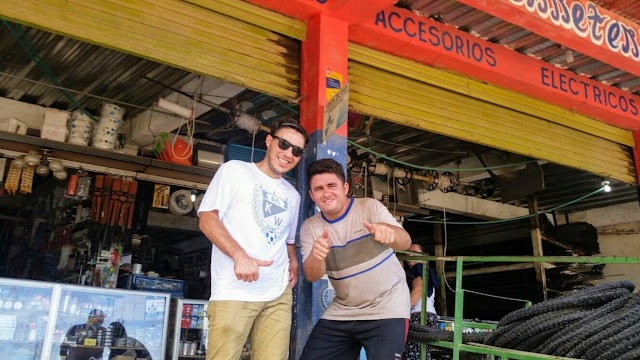Community Economic Development: Where Community Comes First
My mom use to tell me “Be kind and take care of each other,
you’re from the City of Good Neighbors (Buffalo, NY)”. Sentiment like this come
to mind when I think of the various places I've considered home throughout the years. Whether a rural town or a mega city, any site can be the "City of Good Neighbors" provided it fosters a strong sense of community.
Certainly, when I envisioned my role prior to arriving in
Colombia, I could have told you about the importance of community, though I
liked to emphasize the economic part
of being a Community Economic Development volunteer. After all, “economic
development” is rigorous and requires quantitative reasoning skills that only a
top-notch education and a solid CV can provide, right? I use to brainstorm ways
that I could potentially increase efficiency
and effectiveness of economic enterprises, while demoting potential activities
that build community as “ordinary” and, therefore, secondary in focus. The
community part of my work was often discounted because it was unfamiliar and
not as well understood. I also tried to compare Peace Corps service to formerly
held occupations where I collected a pay check in exchange for my completing clear
job duties. I had forgotten how Peace Corps service
is fundamentally different than any other position I’ve held. I would soon
learn that economists, politicians, and management analysts are not capable of
doing what PCVs do at the community level over the course of two years, and
therein lies our unique value. In those initial phases, I possessed a
combination of altruism and arrogance, but as any Returned Volunteer can attest
to, the service grounds even the most benevolent.
Fast-forward 18 months, and my emphasis rests firmly on
community development and secondly on the underlying economics. I feel silly looking back. Today, I focus on
ways to build “confianza” (trust) and try to be a positive example to the youth
who watch my every move. 100's of familiar faces observe my daily actions and how I interact with ordinary people is more noteworthy than any work or its outcomes. I have learned that in Talaigua relationships come
first and everything else comes second and I have adapted life/work style to suit. The first year has been humbling and,
though I doubt my counterparts have realized it, I find myself more often a
student than the assumed role of “professor”.
To outsiders, my small Peace Corps site of Talaigua Nuevo can be considered poor by most economic measures. To my neighbors and I, Talaigua is a vibrant web of relationships and daily interactions whose presence, power, and importance are undeniable, yet hard to define. Talaigua’s is like a one large neighborhood that provides a strong sense of belonging for those lucky enough to call it home and, while economic resources may be scarce, joy is abundant and smiles are contagious. And although my Colombian friends and family may be poor economically their happiness is palpable, and ought be the envy of the “1%” in wealthier nations.
On one hand, community is a familiar term but complicated to measure. You know it when you feel it but conveying community across mediums is more an art than a science. One might say “you just got to be there”. On the other hand, economics is perplexing term but relatively straightforward to measure. Income per capita, gross domestic product, and unemployment rate are clear, comparable, and standard measures, but also irreverent to most persons. Through economic and other standard measurements we develop a false sense that we know a place and can fall trap to its focus: I know I certainly did.
In the past year, I have learned that economic
wellbeing and happiness are not one in the same and that developing a strong
sense of community provides a certain value that a discretionary income simply
cannot. Surely, my impact on Talaigua’s economy has been negligible. But through bringing people together in small
collective projects, I believe I have added to Talaigua’s greatest asset: its community.
So, I will continue to teach entrepreneurship in the high school and encourage
personal finance, but I won’t obsess about outcomes as measured in certain
economic terms. I will rest assured that I am positively impacting my community
in a less measurable, though more relevant and meaningful, way.




Comments
Post a Comment